|
by Rana Asfour It was all about literature and books yesterday on the 33rd floor of the World Trade Centre in downtown Dubai as we - an elegant, slightly bonkers, female crowd of book lovers - gathered for a lunch hosted by the stellar team of the Emirates Airline Festival of Literature. The event's stunning, exclusive location in the Sheikh Rashid Tower offered a breath-taking panoramic 360-degree view of the city of Dubai creating the perfect backdrop for what EAFOL founder Isobel Abulhoul aptly described as 'a lunch with a palpable buzz'. Guest speakers included EAFOL's Founder Isobel Abulhoul, Yvette Judge, EAFOL's Assistant Director, and two Dubai based authors Annabel Kantaria, who won the 2013 Montegrappa First Fiction competition and Rachel Hamilton, first runner-up and winner of the 2015 Emirates Woman Artists Award. Both authors will feature at the 2016 EAFOL taking place on March 1-12. This year's EAFOL promises to be bigger than ever before with 150 authors, 250 sessions and tons and tons of fringe and complimentary children's activities spread out across 12 days. You can book sessions and register to become a festival friend, all by visiting the festival's website HERE. My advice is to get booking as many of the sessions have already been sold out and trust me, this is one event you don't want to miss out on. Quotes of the day worth stopping at: My advice to anyone visiting a literary festival, whether this one or any other one, is make sure you choose a session for an author you don't know or a topic you know nothing about. You might be happily surprised at the result' - Isobel Abulhoul, Founder of EAFOL Litfest [EAFOL] makes dreams come true' - Rachel Hamilton, author of 'The Case Of The Exploding Loo' & 'The Case of The Exploding Brains' You must let mummy go, because tonight her life is going to change' - Annabel Kantaria's very young daughter telling her even younger brother to calm down and let their mum out the door as she headed to the Montegrappa First Fiction Award announcements. Her debut novel 'Coming Home' won first prize that night and her life was never the same again.
0 Comments
The Costa Book of the Year Award, announced last night in London, has been awarded to Frances Hardinge for her novel 'The Lie Tree' making her only the second children's author to ever win the award - Phillip Pullman won it ten years ago.
'The Lie Tree' is a wonderfully evocative and atmospheric novel by Frances Hardinge, award-winning author of 'Cuckoo Song' and 'Fly By Night'. The plot centres around Faith's father who has been found dead under mysterious circumstances. As she searches through his belongings for clues she discovers a strange tree. The tree only grows healthy and bears fruit if you whisper a lie to it. The fruit of the tree, when eaten, will deliver a hidden truth to the person who consumes it. The bigger the lie, the more people who believe it, the bigger the truth that is uncovered.The girl realizes that she is good at lying and that the tree might hold the key to her father's murder, so she begins to spread untruths far and wide across her small island community. But as her tales spiral out of control, she discovers that where lies seduce, truths shatter in the process. Frances Hardinge (born 1973) is a British children's writer. She is best known for her debut novel Fly By Night which in 2006 won the Branford Boase Award and was listed as one of the School Library Journal Best Books. She has also been shortlisted and achieved a number of other awards for both her novels as well as some of her short stories. Hardinge is often seen wearing a black hat and enjoys dressing in old-fashioned clothing. A lost story by famed British children’s author Beatrix Potter — 'The Tale of Kitty-in-Boots' — has been discovered among her memorabilia and will be published this year more than a hundred years after she wrote it.
Jo Hanks, a publisher with Penguin Random House who made the discovery at London’s Victoria & Albert museum in 2013, called the story 'the biggest Potter discovery in generations and almost certainly the last', the London Times Newspaper reported today. According to the BBC, the 'Tale of Kitty-in-Boots' was rediscovered by publisher Jo Hanks after she found a reference to it in an out-of-print Potter biography. Quentin Blake, best known for his work with Roald Dahl, has illustrated the story, to be published in September. For more on this story from the Washington Post click HERE and from the BBC click HERE 'Anna Karenina' by Leo Tolstoy 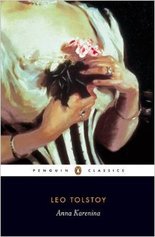 Of course you know the story and have probably seen enough screen and TV adaptations to tell the story yourself. However, How many of them have stayed true to the original script? How awesome would it be to go back into work and gloat that you've finished the book that's usually on everyone's list of yearly reading challenges? At nearly 950 pages (Modern Library Hardback edition), this well-known story has been described as one of the most penetrating novels of the late nineteenth century. Besides, 'Anna Karenina' has maintained its position since it was written in 1873 as a modern classic. 'A Suitable Boy' by Vikram Seth 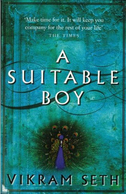 A mammoth read at 1474 pages (Phoenix paperback edition), this is most likely to last you the winter. A love story at its core, the tale of Lata's - and her mother's- attempts to find a suitable boy through love or through exacting maternal appraisal. At the same time this is the story of India, newly independent and struggling through a time of crisis as a sixth of the world's population faces its great General Election and the chance to map its own destiny. 'The Distant Hours' by Kate Morton 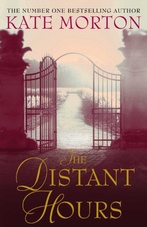 Always trust that Kate Morton will have you spellbound by the end of her novels' opening sentences. She is a master storyteller and there is magic in every single one. 'The Distant Hours' is no exception. This is a book about war, survival and the magical world of books and storytelling. At 670 pages (Mantle paperback edition), this is a novel that will move swiftly along as you are engrossed in Edie Burchill's life in Milderhurst Castle. It all starts with a long-lost letter that arrives one Sunday afternoon with the return address of Middlehurst Castle, Kent, printed on its envelope. Edie begins to suspect that her mother's emotional distance masks an old secret and as she begins to unravel her mother's past, other secrets hidden in the stones of Milderhurst Castle begin to reveal themselves as well for the truth of what happened in the distant hours has been waiting a long time for someone to find it. 'The Museum of Innocence' by Orhan Pamuk 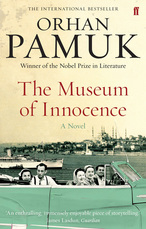 This is the story of Kemal, a wealthy heir about to become engaged to the aristocratic Sibel when he encounters Füsun, a beautiful shopgirl. He falls in love and finds his established world of westernised families, opulent parties, society gossip and dining room rituals is shattered. This 728-page novel (Faber & Faber paperback) has inspired a real museum in Turkey, a legion of fans and now a film is in the pipes. This is one of Orhan Pamuk's finest writings compared by some as the 'Anna Karenina' of the East. 'The Luminaries' by Eleanor Catton 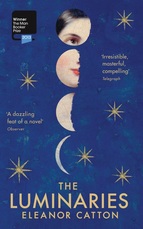 At 832 pages (Granta Books Paperback) 'The Luminaries' won the Booker Prize in 2013. It is the story of Walter Moody who has come to make his fortune upon the New Zealand goldfields. On the night of his arrival he stumbles across a tense gathering of twelve men, who have met in secret to discuss a series of unsolved crimes. A wealthy man has vanished, a whore has tried to end her life, and an enormous fortune has been discovered in the home of a luckless drunk. Moody is soon drawn in the mystery. 'SNOW WHITE' REMOVED FROM INTERNATIONAL SCHOOL IN QATAR 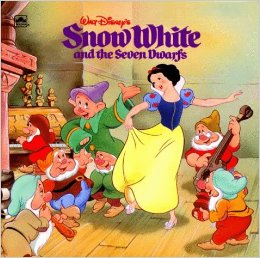 On Thursday, it was reported in 'The Guardian' that children's book 'Snow White' was removed from an International school in Qatar when a father complained that it contained 'indecent sexual innuendo' as well as indecent illustrations. 'The book cover in question shows a smiling Snow White being held by the prince, who in the story revives her with a kiss after she eats a poisoned apple', English-language website Doha News reported. The school took the complaint very seriously, promptly banned the book and apologised to the grieved father 'for any offence that this unintended situation may have caused'. "Snow White" is a German fairy tale known across much of Europe and is today one of the most famous fairy tales worldwide. The Brothers Grimm published it in 1812 in the first edition of their collection Grimms' Fairy Tales. FIVE YEARS ON: WRITERS ADMIT THEY WERE WRONG ABOUT ARAB SPRING  In a brilliant, must-read article by leading writers in the Arab world in 'The Guardian' yesterday, many have expressed how naive and misguided they were to believe that change had been just around the corner when five years ago the Arab Spring was breaking out across the Middle East. Robin Yassin-Kassab, Alaa Abd El Fattah, Ahdaf Soueif, Mourid Barghouti, Laila Lalami, Raja Shehadeh, Khaled Mattawa, Tamim al-Barghouti, Nouri Gana and Joumana Haddad offer insight how they view the situation as it stands today in Syria, Egypt and Iraq as well as other parts of the Middle East in general including Tunisia. Read full article HERE. BOOK RELEASE TO WATCH OUT FOR NEXT WEEK! 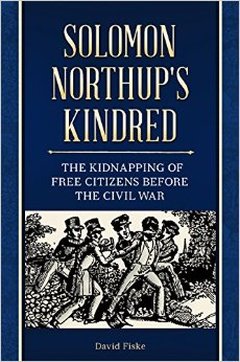 'Solomon Northup's Kindred: The Kidnapping of Free Citizens Before The Civil War' by David Fiske Kidnapping was a lucrative crime in antebellum America, and many American citizens-especially free blacks-were abducted for profit. This book reveals the untold stories of the captured. Features portraits, sketches, and images of documents and newspaper articles related to kidnapping. Identifies the numerous factors that led to the lucrative business of kidnapping. Describes the physical and psychological subduing of victims. Includes the perspectives of those who tried to help: educators, crusaders, rescuers, and cooperative slave owners. David Fiske, MLS, is a librarian and researcher with extensive experience in African American history. He is the author of 'Twelve Years a Slave'. 'The Heart Goes Last' by Margret Atwood 'GLORIOUSLY MADCAP' - THE OBSERVER Stan and Charmaine are a married couple trying to stay afloat in the midst of economic and social collapse. Living in their car, surviving on tips from Charmaine's job at a dive bar, they're increasingly vulnerable to roving gangs, and in a rather desperate state. So when they see an advertisement for the Positron Project in the town of Consilience - a 'social experiment' offering stable jobs and a home of their own - they sign up immediately. All they have to do in return for this suburban paradise is give up their freedom every second month, swapping their home for a prison cell. At first, all is well. But slowly, unknown to the other, Stan and Charmaine develop a passionate obsession with their counterparts, the couple that occupy their home when they are in prison. Soon the pressures of conformity, mistrust, guilt and sexual desire take over, and Positron looks less like a prayer answered and more like a chilling prophecy fulfilled. A sinister, wickedly funny novel about a near-future in which the lawful are locked up and the lawless roam free, The Heart Goes Last is Margaret Atwood at her heart-stopping best. 'Gabriati Rise of the Perceptor' by Sreyus Palliyani A DEBUT NOVEL "Gabriati - The Legendary Preceptor and the deadliest assassin of the cloak is the only thing that stands between humanity and the greatest threat to our existence. As blood is spilled in God’s name, Gabriati – the lone warrior rises against all odds. The question is – Is he the greatest saviour or the greatest traitor of the ancient Brotherhood? 'The Incarnations' by Susan Barker SHORTLISTED FOR THE KIRKUS REVIEW PRIZE 2015
Beijing, 2008, the Olympics are coming, but as taxi driver Wang circles the city’s congested streets, he feels barely alive. His daily grind is suddenly interrupted when he finds a letter in the sunshade of his cab. Someone is watching him. Someone who claims to be his soulmate and to have known him for over a thousand years. Other letters follow, taking Wang back in time: to a spirit-bride in the Tang Dynasty; to young slaves during the Mongol invasion; to concubines plotting to kill the emperor; to a kidnapping in the Opium War; and to Red Guards during the Cultural revolution. And with each letter, Wang feels the watcher in the shadows growing closer … Sweeping between China past and present, 'The Incarnations' illuminates the cyclical nature of history, and shows how man is condemned to repeat the same mistakes over and over again. 'The Hundred-Year Walk: An Armenian Odyssey' (Houghton Mifflin Harcourt) is a non-fiction debut by Californian writer and journalist Dawn Anahid MacKeen just published on January 12. Dawn MacKeen is an award-winning investigative journalist who devoted eight years to her grandfather’s story. Previously she was a staff writer at Salon, Newsday, and Smart Money. Her work has appeared in the New York Times Magazine, Elle, the Los Angeles Times, and elsewhere.
At the age of 30, the writer reads a translation of Stepan Miskjian's - her grandfather - harrowing journal that reveals a detailed firsthand account of his journey of survival from the Armenian genocide of 1915 through Turkey and the Syrian desert and finally to safety armed with one gold coin and a bit of water. A century later, and in an attempt to learn more about him, the author sets out on her own journey to follow his route through Turkey and Syria. The result is a compelling new take on an important, too-little-understood chapter of history. For full interview HERE & for review HERE. by Rana Asfour Calligraphy is a visual art, related to writing in which - and this is a personal observation - every cursive letter seems to harbour in its folds a story of its own. Calligraphy, from the Greek words kallos (beauty) and graphos (writing), refers to the harmonious proportion of both letters within a word and words on a page. It is the most esteemed art form in the Islamic world. According to the New York Metropolitan Museum of Art website, The first calligraphic script to gain prominence in Qur'ans and on architecture and portable works of art was kufic, which features angular letters, horizontal format, and thick extended strokes. Eventually, variations of kufic emerged. Examples range from letters intertwined with floral ornament (floriated kufic) to letters that appear to be woven into knots. Kufic is the oldest calligraphic form of the various Arabic scripts and consists of a modified form of the old Nabataean script. It developed around the end of the 7th century in Kufa, Iraq, from which it takes its name. If this has sparked an interest and you live in Abu Dhabi, then rejoice! Taking place this weekend at Art Central in Boutik Mall, on Reem Island, is a calligraphy pop up workshop by renowned instructor Nafi Hakki.This is an introductory 2-hour session for anyone wanting to explore the different types of scripts and styles of Arabic calligraphy. Booking is essential. Maybe we'll bump into each other there! And for those who'd like a brush with calligraphy from the comfort of a comfortable sofa, here are book titles that have calligraphy involved one way or the other in their plot. Enjoy!
by Rana Asfour Although a man with an extremely busy schedule, HH Sheikh Mohammed Bin Rashid, Vice President of the UAE and Ruler of Dubai, has taken it upon himself to get most Arab children, well a million of them to be exact, to read 50 books each. The Arab Reading Challenge which was announced in September of last year by HH through his Twitter account, pledges more than US$3 million (Dh11m) in rewards for teachers, pupils and their families – and $1m for the top school. Only yesterday, HH took to Twitter again to ask the public for its opinion on how best to get children and the community reading (check out #ReadingYear). One answer that stood out for me and was one of those reported by the UAE’s National newspaper this morning, was KDSL Kevin Simpson’s announcement that, come March, the successful ‘Real Men Read’ campaign is to launch in Dubai. The campaign relies on a community effort to encourage children – mainly boys – to pick up books and read for enjoyment. According to their website, KDSL (Know.Do.Serve.Learn) is a UAE-based education company focused on providing professional development to American curriculum educators in the MENA region. It was founded by Kevin Simpson and Alison Burrows who bring more than twenty five years of combined experience in the fields of education and training. The ‘Real Men Read’ is a fantastic program created by Minnesota library media specialist at Spring Lake Park High School, Tori Jensen. Its aim was to create posters featuring male teachers, librarians, and administrators posing with their favourite book, magazine or newspaper. The message was clear: ‘real men are readers and proud of it too!’ The program has since then been hugely successful adopted by various high schools across the US. In a great article published by educationworld.com entitled ‘Male Teachers Show That Real Men Read’, it is quite evident why such a program has found an appeal with both educators and young students –particularly boys. Jensen, a ‘reluctant reader’ as a child has ‘always been interested in getting reluctant readers to read – especially boys’, she says. ‘Among the factors that discourage boys from reading as they get older’, Jensen said, ‘is that they don’t perceive reading as a male activity -- since most of the people urging them to read are women. Also, many boys prefer reading non-fiction works, which rarely are assigned in class, so they don’t see that as real reading’, she added. Other factors she lists include situations whereby educators often look down upon topics that are favoured by boys such as sports, horror, comics, graphic novels and non-fiction. It will be interesting to monitor what Dubai’s based KDSL has in mind for their March launch and whether they plan to implement the program for Arabic as well as English speaking students.
by Rana Asfour
'The Readers of Broken Wheel Recommend' is a novel about Sara Lindqvist from Sweden, pen pal to Amy, an American and resident of Broken Wheel in Iowa - 'a dilapidated town named after a mistake and intent on doing its best to live up to its name'. The two women had met online when Sara had bought a book from Amy through an online secondhand bookshop where private individuals could also sell books. When Amy had declined to take any payment for her book, Sara had plucked up the courage to send a book in thanks, and things had continued from there.
Soon, Amy and Sara are sending each other letters - although the novel is written in the time of email- in which they discuss books, and the people in the little town of Broken Wheel; Wonderful funny letters that are to Sara 'the lifeline in an existence that had otherwise started to seem overwhelmingly pointless'. When, at Amy's insistence, Sara finally accepts an invitation to visit and stay with Amy both are excited that they will finally get to meet face to face. Sara is a heroine who believes that 'as long as she has books and money, nothing could be a catastrophe' and so it is books - a bookshop to be precise- she naturally turns to for guidance when she gets to Broken Wheel and discovers that an unpredictable turn of events has managed to bring about the shattering of her well-laid plans - Amy has died. Finding herself utterly alone in a dead woman’s house in the middle of nowhere was not the holiday Sara had in mind. However, in no time at all, Sara's life and passion for books are soon interlacing with the various lives of the town's peculiar residents (poor George, fierce Grace, buttoned-up Caroline and Amy’s guarded nephew Tom) who find themselves drawn to the Swedish girl and her impromptu bookshop. As Sara falls in love with the town and possibly one of its residents, she is unaware that her new 'friends' are collectively hatching an incredulous plan to keep her permanently in their midst. I've loved maybe a handful of people in my entire life, compared with tens or maybe even hundreds of books - and here I'm counting only those books I've really loved, the kind that make you smile regardless of what else is happening in your life, that you always turn back to like an old friend and can remember exactly where you first 'met' them - I'm sure you know what I'm talking about' - Sara, 'The Readers of Broken Wheel Recommend'. 'The Readers of Broken Wheel Recommend' is one of the sweetest, funniest, touchingly sentimental reads this winter. Released this January, 'The Readers of Broken Wheel Recommend' is a novel that weaves a captivating tale about the magical healing 'power of books' that exists even in today's digitally-charged age. This is a book lover's dream read with references galore to famous literary classics as well as contemporary favourites. There are enough titles packed into this short book to help a budding book club create a reading list for 2016 - if still struggling to make a list of their own that is. There's even a short - don't panic, it's not boring - mention regarding the history of Penguin - the publishers not the bird. The characters that Katarina Bivald has created are believable, loveable, strong and easily identifiable far away from the fantasy of the book. This is a feel good book by all accounts - something that is welcome given the heightened sadness the world has experienced of late - and yet it is not free of sadness. As Sara explains in the novel, 'People often thought that feel-good novels were happy, banal stories, but a real feel-good tale wasn't worth the name unless it involved a couple of murders, accidents, catastrophes, or deaths'. Whatever readers may decide that the book is about - love, family, loneliness, death, relationships, values and yes books - it is doubtful that any will argue that it is one written completely and utterly from the heart about the mystical charms of a bookshop! A series or a sequel to follow? One can only hope! For a chance to win a FREE copy, click below: For the third year running, Costa Coffee is a proud sponsor of the Emirates Airline Festival of Literature in Dubai – and this year, the brand is celebrating with the launch of ‘The Costa Debate.’
The debate, a competition that brings together people’s mutual love of literature, invites fans to showcase their creative abilities by writing a short, 300 word blurb on where they stand on one very important issue: Coffee vs. Tea, to be in with a chance of winning a 4-day trip for two to the Costa Roastery in London, UK. One runner-up will also be selected to receive a year’s supply of free coffee. Closing date for the competition is Feb 10 and entries can be submitted online at www.emirateslitfest.com/costadebate. Entries are welcome in both English and Arabic. The competition is open to anyone over 14 years of age and of any nationality who is currently resident in the UAE. Competition Terms and Conditions:
You can also visit Costa Coffee’s social media pages to share your support for the #CostaDebate and join in celebrating the 8th Emirates Airline Festival of Literature!
The International Prize for Arabic Fiction (IPAF) has revealed the longlist of 16 novels in contention for the 2016 prize. Those selected were chosen from 159 entries from 18 countries, all published within the last 12 months. The highest number of 2016 longlisted authors came from Egypt and Palestine.
Two of this year’s longlisted authors have been shortlisted for the prize previously: Rabai al-Madhoun and Mohamed Mansi Qandil both appeared on the IPAF shortlist in 2010, with al-Madhoun’s book, 'The Lady from Tel Aviv', now available in English translation from Telegram Books. Taleb Alrefai was also Chair of Judges for IPAF that year. The list includes a number of younger writers and debut novelists. Three longlisted writers are under the age of 40, and first novels by Tareq Bakari and Abdennour Mezzine have been included. In addition, two of the longlisted authors – Mohamed Rabie and Shahla Ujayli – have previously participated in IPAF’s annual nadwa, or writers’ workshop, for emerging writers with promise. Ujayli worked on a section of her longlisted book, 'A Sky Close to Our House', during the 2014 nadwa. The full 2016 longlist: 'Here' by Taleb Alrefai, Kuwait, Platinum Books 'Hymns of Temptation' by Laila al-Atrash, Palestine/Jordan, Difaf Publications 'Numedia' by Tareq Bakari, Morocco, Dar al-Adab 'The Temple of Silken Fingers' by Ibrahim Farghali, Egypt, Al-Ikhtilef 'People of the Palms' by Janan Jasim Halawi, Iraq, Saqi Books 'Mariam's Journey' by Mahmoud Hasan al-Jasim, Syria, Dar Tanweer, Egypt 'Desertified Waters' by Hazim Kamaledin, Iraq, Fadaat 'Destinies: Concerto of the Holocaust and the Nakba' by Rabai al-Madhoun, Palestine, Maktabat Kul Shee 'Letters of the Storm' by Abdennour Mezzine, Morocco, Slaiki Akhawayn Publications 'Warsaw a Little While Ago' by Ahmed Muhsin, Lebanon, Hachette Antoine 'The Prophecy of Saqqa' by Hamed al-Nazir, Sudan, Dar Tanweer, Tunis 'The Black Brigade' by Mohamed Mansi Qandil, Egypt, Dar al-Shorouq 'Mercury' by Mohamed Rabie, Egypt, Dar Tanweer, Lebanon 'Praise for the Women of the Family' by Mahmoud Shukair, Palestine, Hachette Antoine 'A Sky Close to Our House' by Shahla Ujayli, Syria, Difaf Publications 'The Guard of the Dead' by George Yaraq, Lebanon, Difaf Publications The books were selected by a panel of five judges, whose names will be announced in Muscat, Oman, on Tuesday 9 February 2016, at the same time as the 2016 shortlist of six titles. This is the ninth year of the Prize, which is recognised as the leading prize for literary fiction in the Arab world. The winner of the International Prize for Arabic Fiction 2016 will be announced at an awards ceremony in Abu Dhabi on Tuesday 26 April 2016, the eve of the Abu Dhabi International Book Fair. The six shortlisted finalists will receive $10,000, with a further $50,000 going to the winner. The International Prize for Arabic Fiction is an annual literary prize for prose fiction in Arabic. It is run with the support of the Booker Prize Foundation in London and funded by the Abu Dhabi Tourism & Culture Authority (TCA Abu Dhabi) in the UAE. Matt de la Pena's and Christian Robinson's "Last Stop on Market Street" nearly made history twice Monday. The illustrated exploration of race and class through the eyes of a boy and his grandmother won the Newbery Medal for the best children's book of 2015, making de la Pena the first Hispanic writer to receive the 94-year-old prize, one of the most cherished among children's writers. It came close to another rare coup by finishing as a runner-up for the Caldecott Medal for the top illustrated book.
"I hope all the brilliant Hispanic writers of the past and present view this as a recognition of our diverse community and that it inspires young Hispanics coming up to read their way through the world and consider a path in the arts," de la Pena said in a statement released through his publisher, Penguin Young Readers. The winner of the Caldecott Medal was "Finding Winnie," the story behind A.A. Milne's famous literary creation Winnie the Pooh, illustrated by Sophie Blackall and written by Lindsay Mattick. The Newbery and Caldecott awards were announced by the American Library Association, which has gathered in Boston for its annual midwinter meeting. Ta-Nehisi Coates' "Between the World and Me," winner last fall of the National Book Award, was among 10 recipients of the Alex prize for adult books that appeal to teen readers. Coates' book is an open letter to his teenage son about racism and police violence. The association also handed out two lifetime achievement awards for a former Caldecott winner, the illustrator Jerry Pinckney. Another lifetime achievement honour was given to novelist David Levithan, who works as editorial director at Scholastic. Rita Williams-Garcia won her second Coretta Scott King Award in three years for the best book by a black writer. Williams-Garcia was cited for "Gone Crazy in Alabama" the third of a trilogy about the Gaither sisters. Laura Ruby's "Bone Gap" won the Michael L. Printz Award for excellence in literature written for young adults. The Belpre award for best Latino/Latina book was given to "Enchanted Air: Two Cultures, Two Wings: A Memoir," written by Margarita Engle. Rafael Lopez won the Belpre illustrator prize for "The Drum Dream Girl," written by Margarita Engle. Source: Associated Press Mohammed Bin Rashid Al Maktoum Foundation (MBRF), a leader in the dissemination and transfer and localisation of knowledge, has launched the second phase of the Writing category as part of its Dubai International Program for Writing, featuring a workshop led by Tunisian writer Wafa Mezghani. The workshop, which will be conducted over six months, will offer training to 10 Emirati writers to enhance their talents in the field of writing for children. On the occasion, His Excellency Jamal bin Huwaireb, Managing Director of MBRF, said: “The Dubai International Program for Writing, which was launched under the guidance of His Highness Sheikh Ahmed bin Mohammed bin Rashid Al Maktoum, Chairman of the Foundation, aims through its categories – Writing and Writers Exchange – to produce a generation of youth talent in the field of writing. Our effort is to provide training to refine their literary capabilities with the help of a group of experts and pioneers in various fields of writing from the Arab world.” Tunisian writer Wafa Mezghani commended MBRF’s efforts in the dissemination of knowledge and the promotion of writing capacity for youth talent. “Investing in children means investing in the future. The UAE and its institutions have realised the importance of preparing for the future, and has therefore introduced programmes and initiatives that improve the talents and potential of the UAE and Arab children,” she said. The workshop on Writing for Children comes within the strategy to encourage creative writing in this field in order to enrich the Arabic library with content that encourages innovation and builds the character and knowledge of the children of the 21st century. The workshop will improve the quality of writing by inspiring creative ideas and offering advanced education mechanisms to stimulate the imagination of the participants. The author Wafa Mezghani – the mentor of the Children’s Literature Writing Workshop – specialises in children’s literature in the Arab World; she is a teacher in the Tunisian University and a researcher in the children and women culture. Mezghani was also the Head of Research Department in Children Culture till 2013, and the Head of the International Board on Books for Young People- Tunisia (TUNiBBy), and she is jury member of many children’s book competitions. by Rana Asfour One of the most exciting thrillers to come out in 2015, 'I Came to Find a Girl' by Jaq Hazell (aka Jacqui Hazell) is the one you should be reaching for if dark, intense crime fiction is your thing. This deliciously intense novel about female art student Mia, and her entanglement with award-winning, renowned super artist Jack Flood has hit the shelves to very high praise.
Described by the Telegraph as 'Dark, Haunting, Twisted', and listed as their top best crime fiction for 2015, and described by yours truly as 'a disturbing reflective book that will refuse to loosen its grip on you for some time', BookFabulous thought it fitting that more be known about the author, her book and her writing in general from none other than the author herself (of course!). Thankfully, she kindly and graciously agreed to oblige. Hazell was born and brought up near Portsmouth, on the south coast of England. As a kid she wanted to be an artist and so found herself naturally enrolling at the art college (Nottingham via Winchester School of Art) to study textile design. However, her passion for writing took over somewhere along the line and that was that. After graduating she moved to London and took up her first full time job at none other than Buckingham Palace where, 'in between typing up royal itineraries, I wrote stories'. Other jobs followed: she published a collection of humorous greetings cards and worked as a journalist and magazine editor, and wrote fiction in the meantime. Hazell has an MA in creative writing from Royal Holloway, University of London, she is shortlisted for The Virginia Prize for Fiction and the Jane Austen Short Story Award and published in various anthologies, alongside a growing family, various house moves and the addition of a dog – her one constant has been her writing. Her website (Jacqui Hazell: Walk Dog, Write, Walk Dog Again) can be accessed HERE. To read the full BookFabulous review of 'I Came to Find a Girl', click HERE and to purchase click HERE. BookFabulous (BF): How did the idea for ‘I Came to Find a Girl’ come about? Were there any real life experiences – possibly from Nottingham where the novel is set - that you drew on for the novel? Jaq Hazell (JH): Safety is always an issue for women and I was thinking about what if, against your better judgement, you find yourself alone with someone you know little about? Thankfully I haven’t experienced what Mia goes through, but whilst backpacking in India aged 19, a man did lunge at me and had to be pulled off by other people. I later saw him reflected in the mirrors that lined the walls of a café in Mumbai and felt threatened all over again. Most women probably have a close scrape at some point in their lives. BF: I found the book’s title and cover exceptionally clever and fitting the general mood of the novel, how were they chosen? JH: There were a few different working titles but in the end I decided it had to come from the book itself. It fits because it’s something Flood says, and at the same time it works with the ending. The cover started with a photograph I’d taken of London’s South Bank in the rain. My designer added the male figure and the blue tone to give a sense of menace in a city street at night. BF: There are many themes that the novel touches upon, some more unsettling than others. What would you say was the hardest part in writing your novel? And are there any subjects that you wouldn’t ever consider writing about? JH: Whilst writing I do put myself in the place my characters inhabit in order to work out how they will react and that can be tough when they are suffering. I wouldn’t like to rule out any subjects. I think it depends how you handle a subject. For instance I’m not interested in portraying graphic violence but I am interested in the psychological impact crime can have on a character. BF: Is there a message that you wanted your readers to grasp after they finish reading the book? JH: I didn’t write with a message in mind, but on completion I suppose I’d say it’s: be aware at all times. BF: Tell us a bit about Flood. We know he’s already dead. However, he remains this major elusive enigma throughout the story able to exert power over Mia from beyond the grave. In one sense do you you think he himself was a victim of the ‘modern’ art scene? JH: He’s stuck in a rut making artworks with only slight variations and that does seem to happen to some successful artists. BF: I have to admit I am on the fence where Mia is concerned. What happens to her is absolutely awful and I thought she was quite a tough, resilient, highly intelligent character. However, I got the sense that she was a flawed character too. Would you say that’s what helped her to react to what happened to her in the way that she did? JH: Mia is flawed. Her reaction wouldn’t be my reaction, but perhaps none of us know how we’d react until we are in that position. I think she does the best she can in the circumstances and she does rise up and become more combative later on. BF: There is quite a lot of reference to feminism in your novel. So, whether as creators of the art or merely muses, how do you see the position of women in today’s art scene? And do you believe that the feminist movement has served its purpose when it comes to art or has it been counterintuitive in the sense of what we have been reduced to calling art where women are concerned? And do you believe there should be different standards of art for men and women? JH: The Guerrilla Girls, who started their campaign 30 years ago in New York, recently updated their famous poster: “Do women have to be naked to get into the Met Museum? Less than 5% of the artists in the modern art sections are women, but 85% of the nudes are female”. In other words, there’s been little improvement. Over 50% of arts graduates are women and then something goes wrong. Until we have gender equality in pay, one-person exhibitions and even quiz show panels there is work to be done. As one of the founding members of Guerrilla girls says ‘all voices in a culture matter’. Women are equally talented so I don’t think there needs to be different standards of art for men and women, but women do need to get the breaks, the representation and an equal number of reviews. BF: The reviews for ‘I Came to Find a Girl’ have been fantastic and one review made reference to the power of words. How do you feel about that? And who/what would you say has had a major influence on your writing style, and what moves you to write? JH: This novel took me a long time to get right and it’s a great relief that it’s getting such a good response. The reviewer who made reference to the power of words gave a five star review but found the book disturbing. Many novels cover murder but sexual assault is written about less (or perhaps less likely to be published) and that probably makes it more disturbing and therefore more powerful. My influences would include writers such as: Emily Bronte, Ernest Hemingway, John Williams, Jeanette Winterson, Ali Smith, James Salter and many more. I love having a writing project on the go. Novels usually evolve from ideas I can’t shake, or a single image I might have, a dream that provides the bones of a plot, or a short story that demands more attention. BF: Where writing is concerned, have you got a specific routine that you follow or any strange writing habits that you’d like to share? JH: It’s pretty much: walk dog, write, and walk dog again. When I am in first draft phase I find it’s best to work six days a week – having two days off at the weekend is too much of an interruption and sets me back. My habits are predictable: massive coffee, chocolate and solitude (often interrupted by my family and dog). BF: If you could be a literary character for a day, who would you be? JH: I’d be Cathy running wild with Heathcliff, but it would have to be when they are young, before she married and before he turned mean. BF: What is one thing that not many people know about you? JH: I like gloomy music. I’m a big Richard Hawley fan. Unless you are not of this planet, then it's most likely that '98 3/4%' you've heard of Dr. Seuss or come across one of his books or a film based on a book he's written. Theodor Seuss Geisel was an American writer and illustrator authoring for children under the pen name Dr. Seuss. At the time of his death on September 24, 1991 Dr. Seuss had completed 44 children's books. Many have become household favourites along the years and have been translated into more than 15 languages with over 200 million copies currently existing around the world. One of my particular favourites has been 'Oh, The Places You'll Go!' which was first published by Random House on January 22, 1990; the last book published in the author's lifetime. Best known for the line, 'Will you succeed? Yes, you will indeed. (98 3⁄4% guaranteed.)', it reached number one on the The New York Times best-selling Fiction Hardcover list directly upon its release. Although a perennial favourite, Dr. Seuss’s wonderfully illustrated book is the perfect send-off for children starting out in the world, be they nursery school, high school, or college grads, it works well for adults as well. “You'll get mixed up, of course, as you already know. You'll get mixed up with many strange birds as you go. So be sure when you step. Step with care and great tact and remember that Life's a Great Balancing Act. Just never forget to be dexterous and deft. And never mix up your right foot with your left.” From soaring to high heights and seeing great sights to being left in a Lurch on a prickle-ly perch, Dr. Seuss addresses life’s ups and downs with his trademark humorous verse and illustrations, while encouraging readers to find the success that lies within. A few years back, Burning Man community made this video based on 'Oh, The Places You'll Go!' which will hit the right notes with any resolution-making individual this January! Enjoy! What it's about:
Set largely on a bleak stretch of northern coast - the Loney - it charts the strange pilgrimage to a local shrine, instigated by the narrator Smith's mother 'Mummer', of an ill-assorted group, hoping to find a cure for her other son Hanny's mutism and learning difficulties. The tension builds as members of the group fall out, the locals behave oddly and a secret room is unveiled at the house where they are staying. Smith and Hanny soon find themselves embroiled in a situation beyond their comprehension, but one that will change both their lives forever. Why BookFabulous recommends it: 1. Hailed as an 'amazing piece of fiction' by non other than Stephen King, 2. A fantastic debut 'atmospheric literary horror' set in Lancashire, it has won Best First Novel section of the Costa Book Awards. 3. It has been released in 11 countries and there's a film on the way. |
Archives
March 2021
|


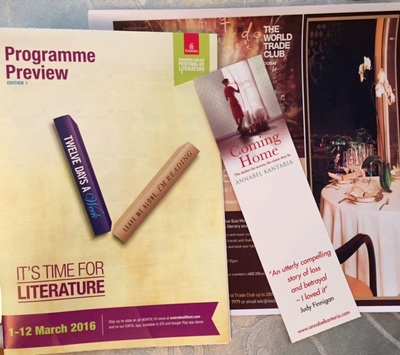

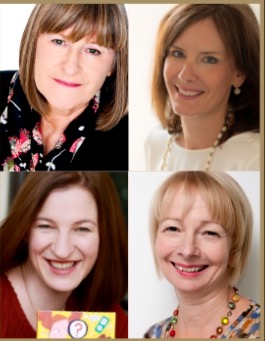
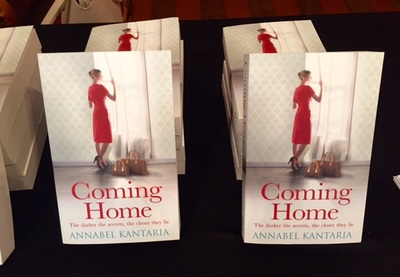
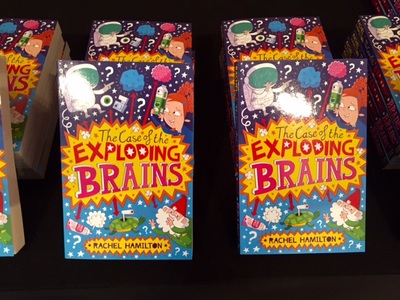
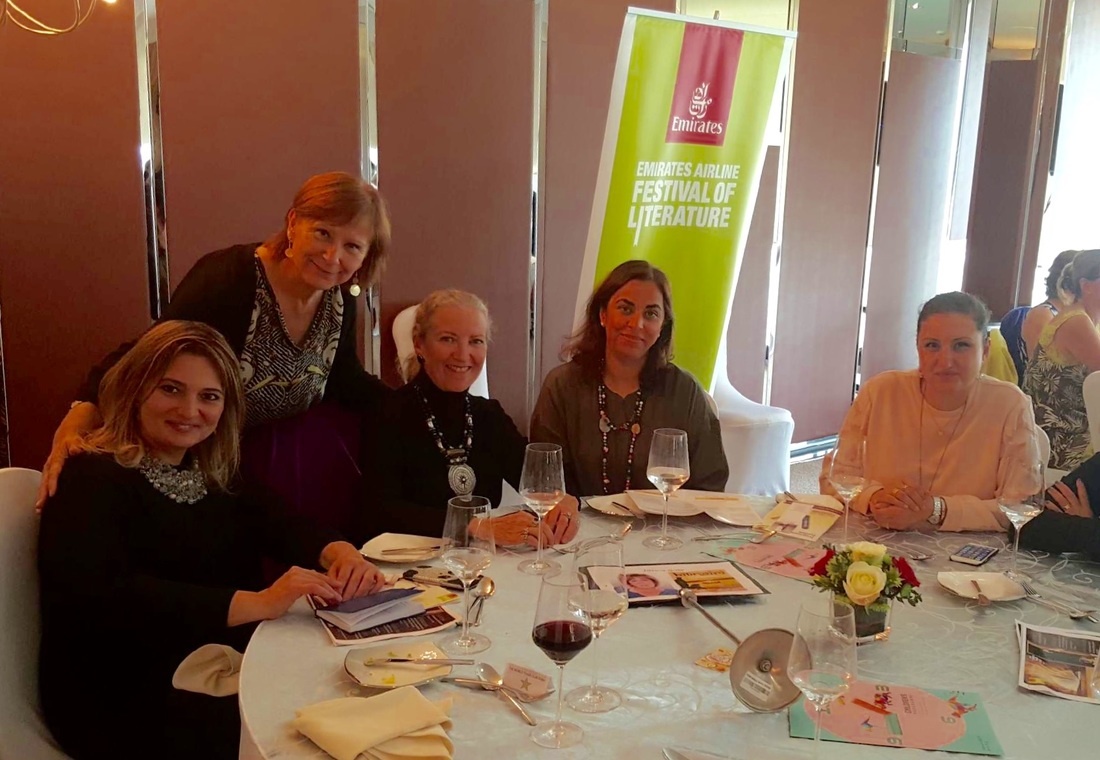
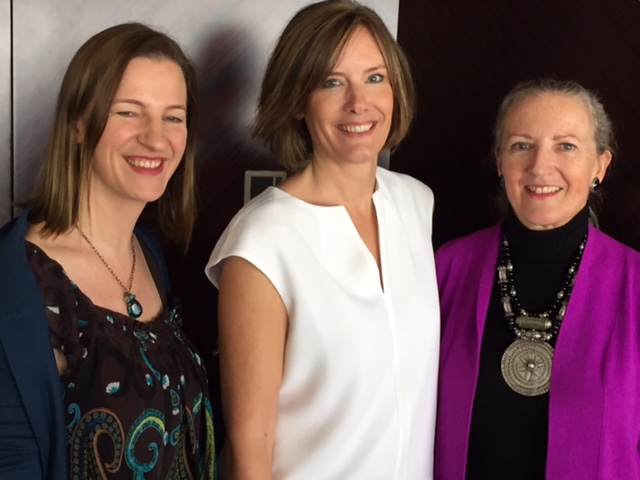
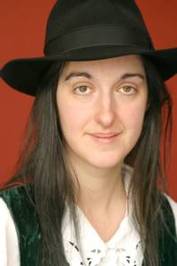
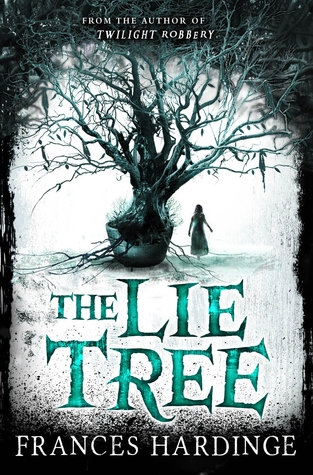
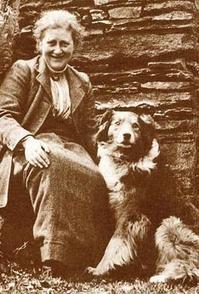
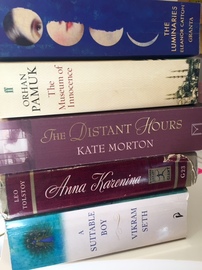
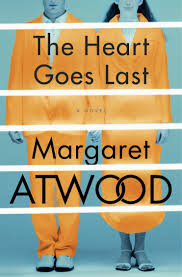
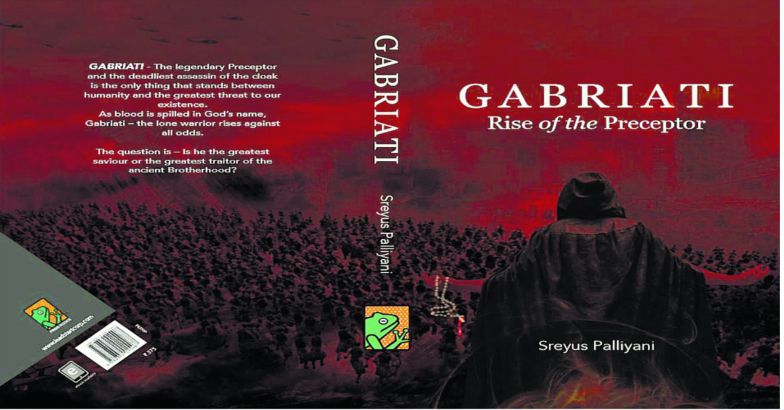
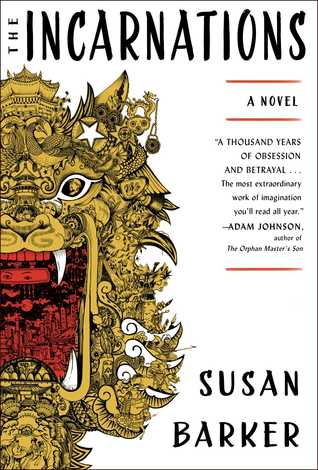
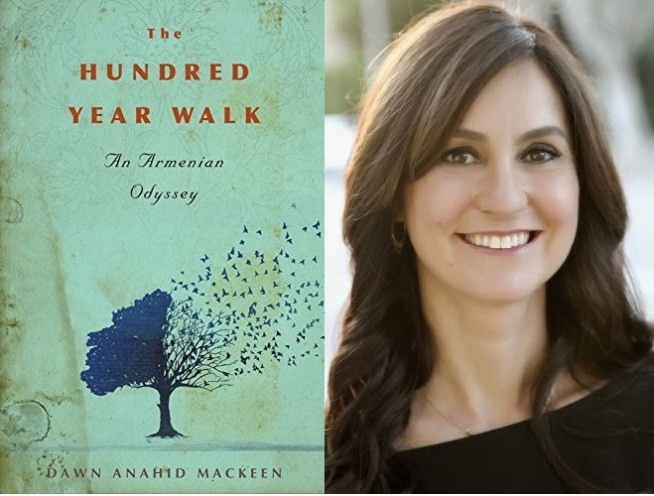

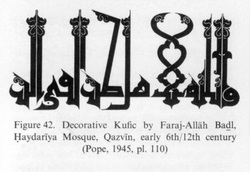
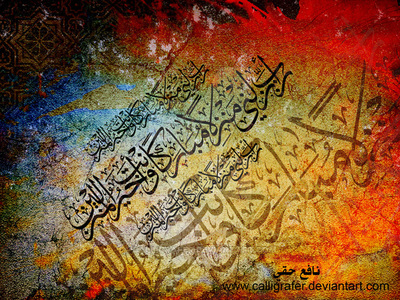
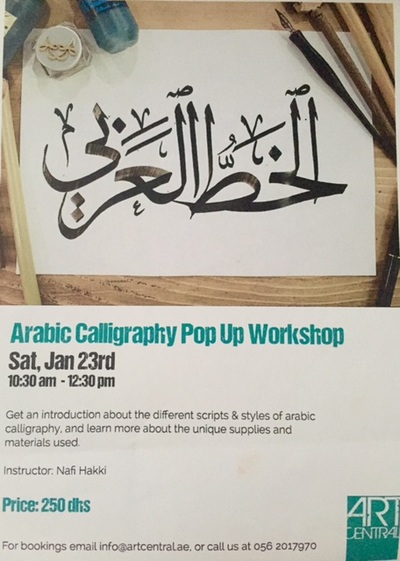
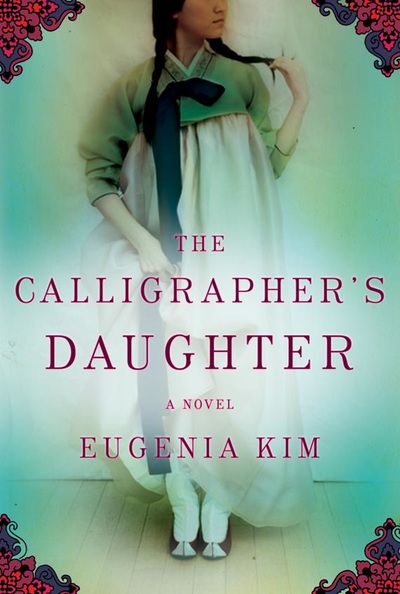
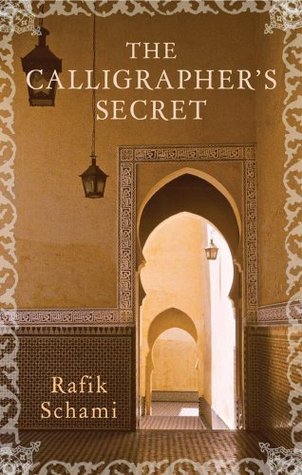
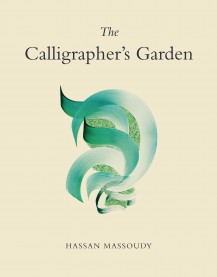
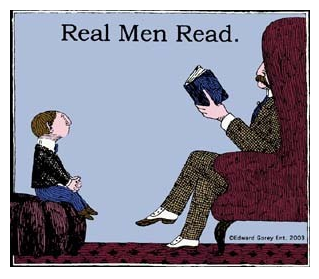
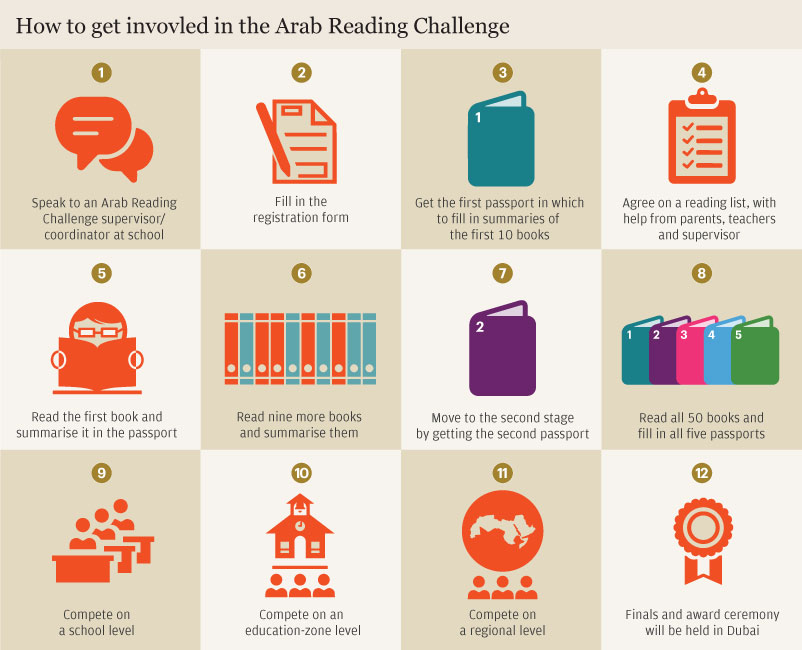
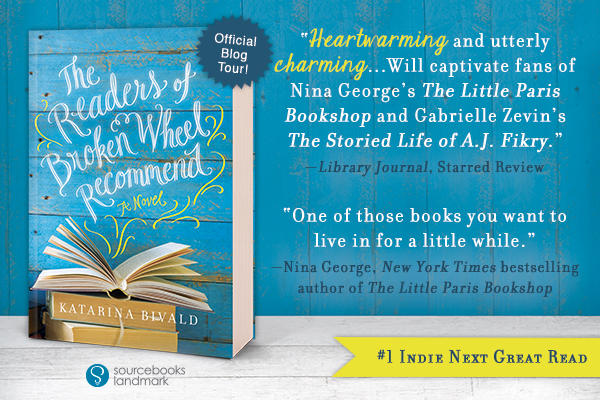
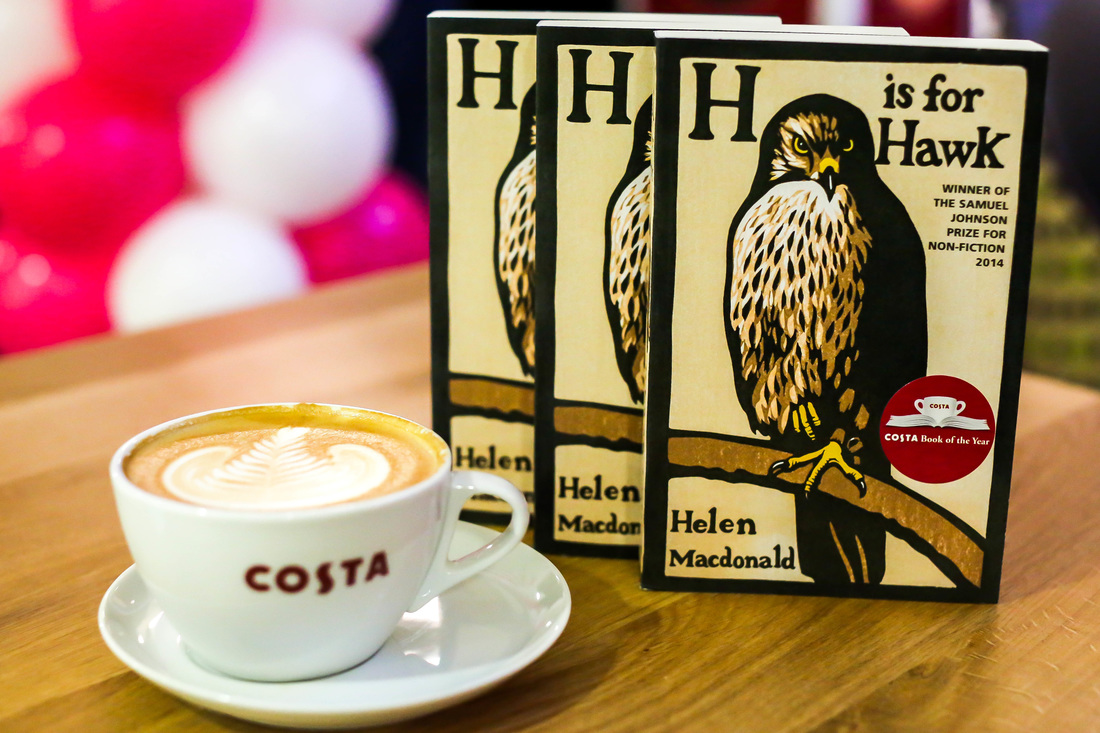
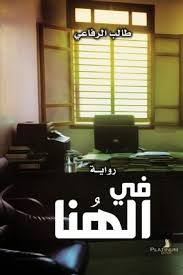
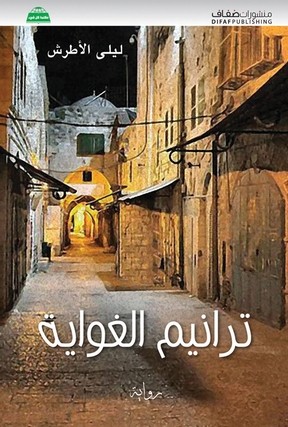
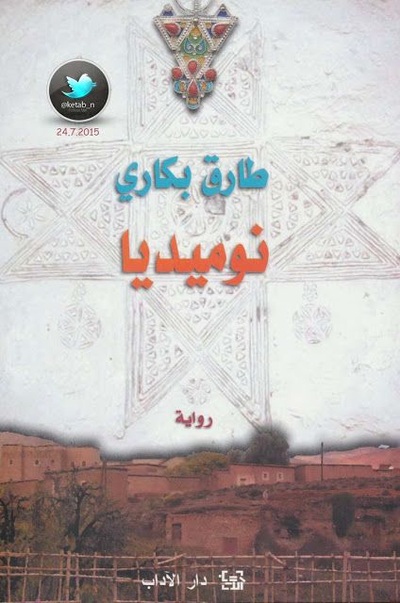
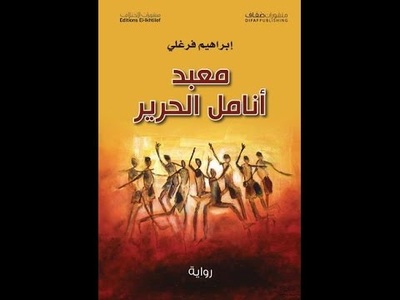
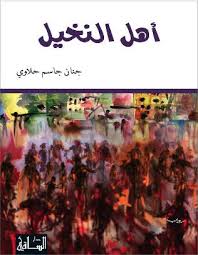
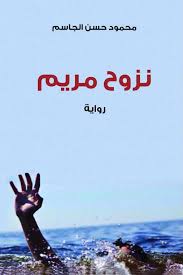
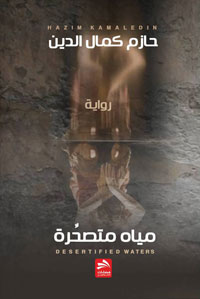
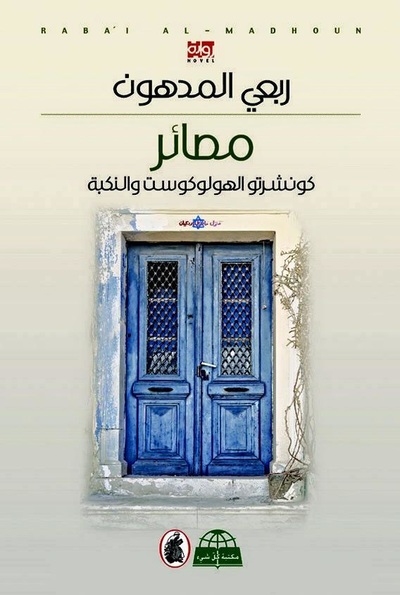
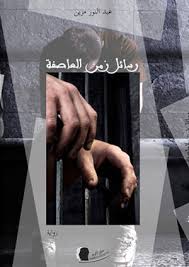
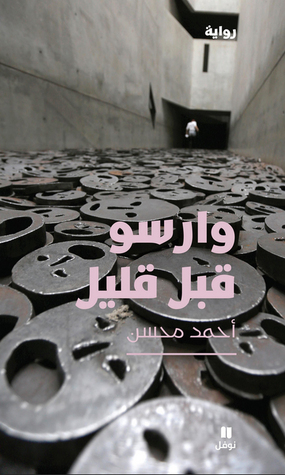
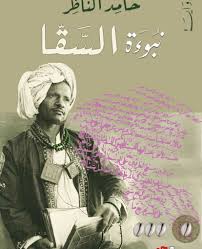
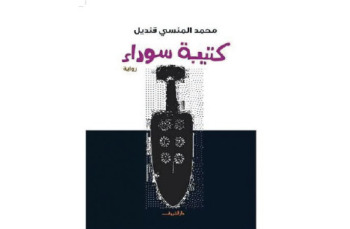
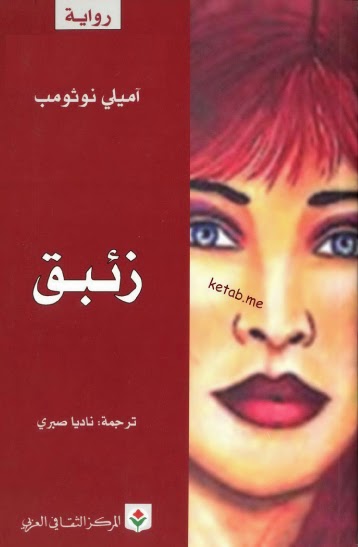
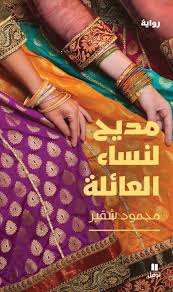
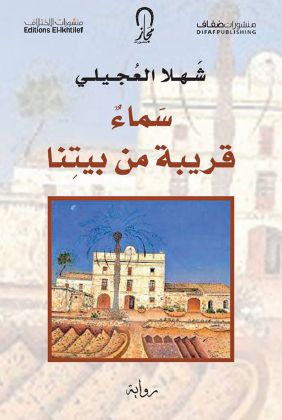

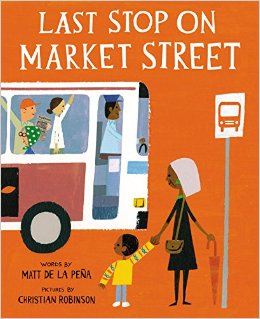
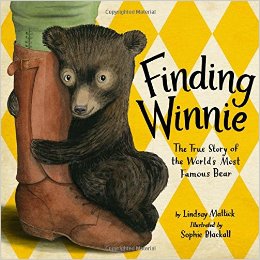
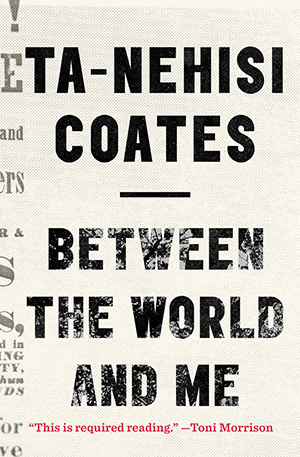
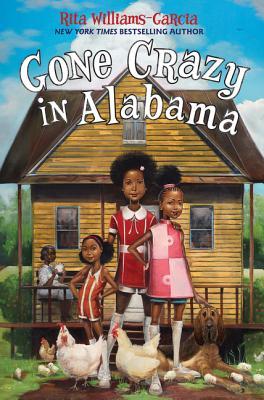
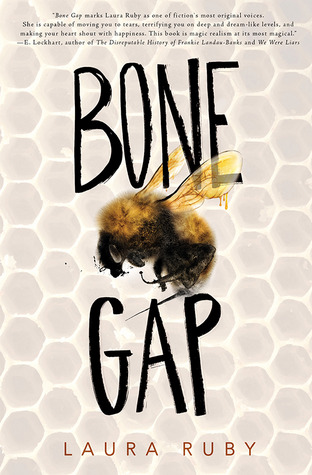
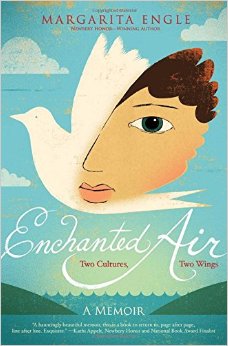
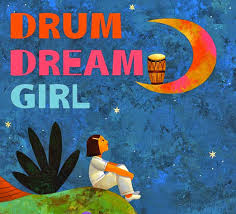
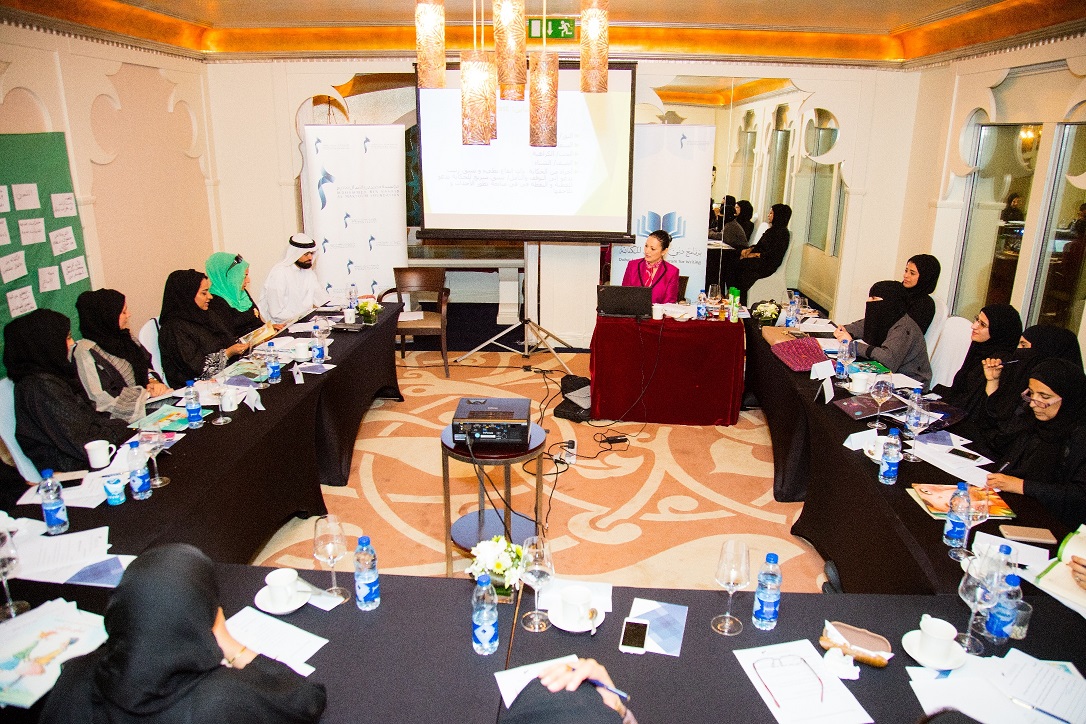
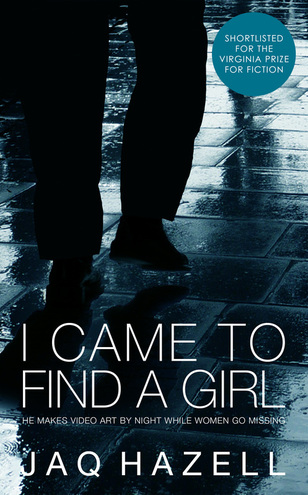
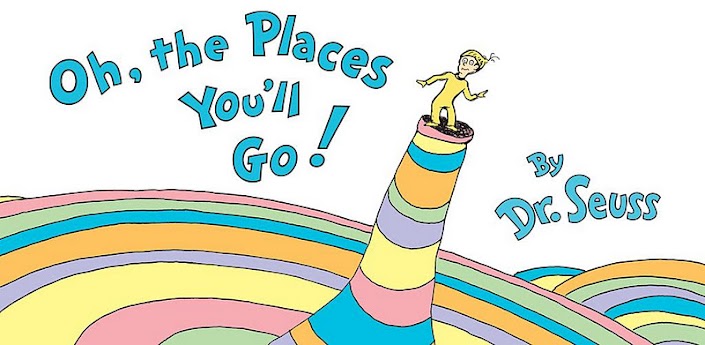
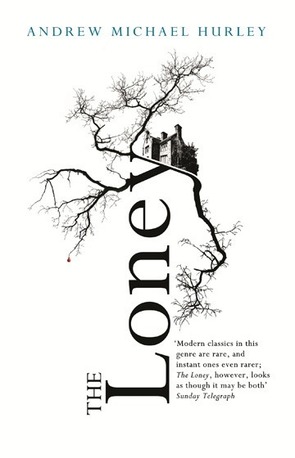


 RSS Feed
RSS Feed
